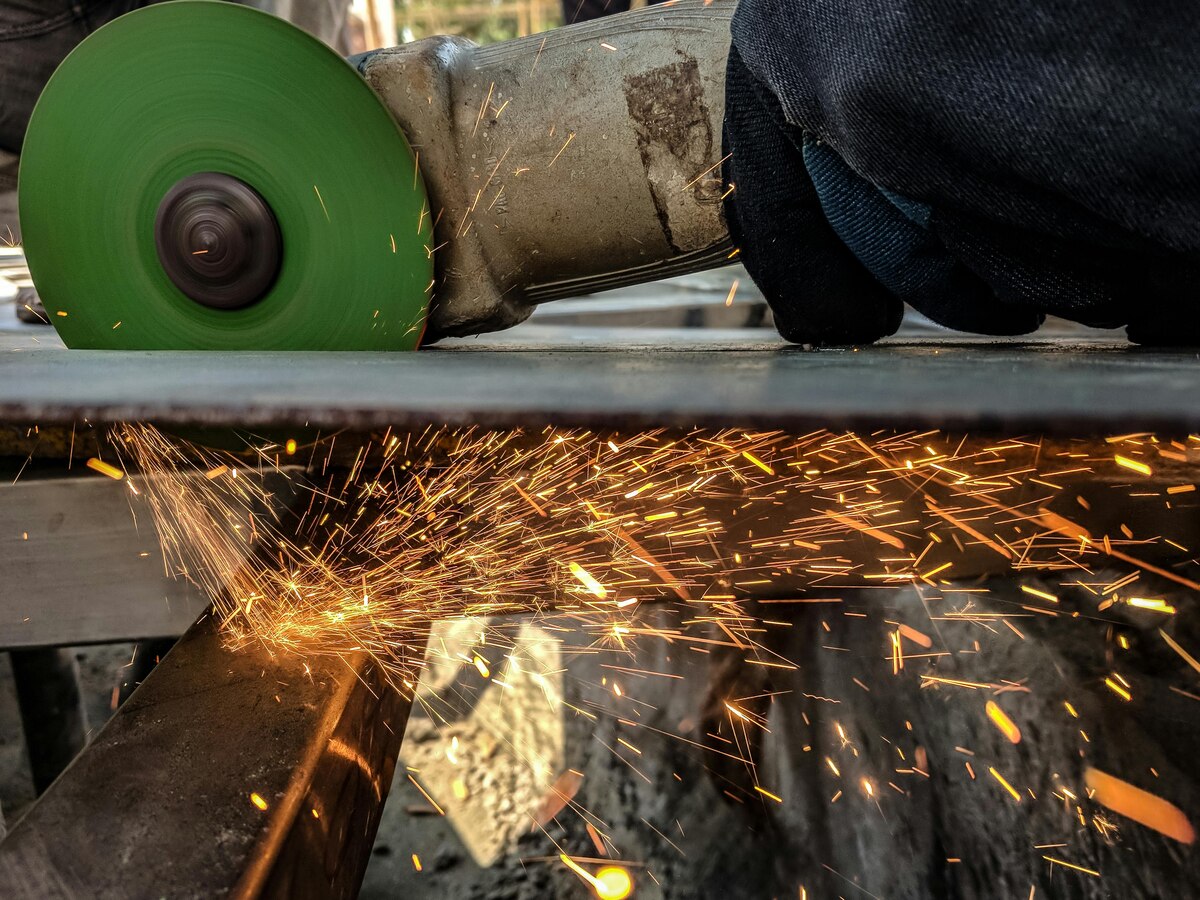High Strength Steel Market: A Comprehensive Overview

Strong 8k brings an ultra-HD IPTV experience to your living room and your pocket.
High Strength Steel (HSS) Market has emerged as a critical material in various industries, offering enhanced performance and durability compared to traditional steel. With its remarkable tensile strength and superior formability, HSS is widely used in automotive, construction, and manufacturing sectors, where lightweight yet robust materials are in high demand. As the demand for eco-friendly and efficient materials grows, the High Strength Steel market has seen a significant expansion globally, driven by increasing applications across diverse industries and advancements in steel production technologies.
High Strength Steel Market Overview
In this blog, we will delve into the High Strength Steel market by exploring key segments, market size, major players, applications, limitations, and future prospects.
Key Segments by Type
The High Strength Steel market is categorized into several segments based on type. These types vary according to their chemical composition and tensile strength, which makes them suitable for different applications:
Dual Phase (DP) Steel
Dual Phase steel is widely used in automotive industries due to its high tensile strength and ductility. The combination of ferrite and martensite microstructures gives DP steel its unique properties, which are ideal for energy absorption during a crash, making vehicles safer.
Complex Phase (CP) Steel
Complex Phase steels offer a balance between strength and ductility, making them suitable for applications where high formability and structural strength are required. It finds applications in automotive and construction sectors.
Martensitic Steel
Martensitic steel, characterized by its extremely high strength, is used in critical structural components where toughness is paramount. It has found extensive use in the automotive sector for crash-resistant components.
Transformation Induced Plasticity (TRIP) Steel
TRIP steels are known for their exceptional formability and energy absorption capabilities. Their ability to increase strength while being deformed makes them an attractive choice for manufacturing safety-critical parts.
Advanced High Strength Steel (AHSS)
Advanced High Strength Steels are a category of steels with superior strength-to-weight ratios. They are primarily used in the automotive industry to reduce vehicle weight, thereby enhancing fuel efficiency and reducing emissions.
Others
Other types of HSS include press-hardened steels and boron steels, each offering unique properties suitable for niche applications in construction and automotive industries.
Market Size in USD and CAGR
The global High Strength Steel market has witnessed robust growth over the past few years, and this trend is expected to continue. According to recent market research, the HSS market was valued at approximately USD 29.7 billion in 2023 and is projected to grow at a CAGR of 7.4% from 2023 to 2030. This growth is attributed to the rising demand for lightweight materials in automotive and construction sectors and the increasing focus on energy efficiency and sustainability.
The automotive industry, in particular, is a major driver of the HSS market, with manufacturers increasingly adopting lightweight materials to comply with stringent environmental regulations. As the demand for electric vehicles (EVs) rises, the need for high-performance, lightweight materials like HSS is expected to surge, further propelling market growth.
Key Market Players
Several key players dominate the global High Strength Steel market. These companies are heavily investing in research and development to innovate and improve the properties of HSS. Here are some of the leading players in the market:
ArcelorMittal
As one of the largest steel manufacturers in the world, ArcelorMittal has been at the forefront of the HSS market. The company offers a wide range of high-strength steel products, catering to industries like automotive, construction, and manufacturing.
POSCO
POSCO is a global leader in steel production and a major player in the HSS market. The company has developed advanced high-strength steels that are widely used in automotive applications, offering enhanced safety and fuel efficiency.
SSAB AB
SSAB AB, a Swedish company, is known for its premium high-strength steel products, particularly for the construction and automotive industries. The company is renowned for its Hardox and Strenx brands, which are widely used in heavy machinery and transportation.
Nippon Steel Corporation
Nippon Steel is a key player in the Asian market, offering a diverse portfolio of high-strength steel products. The company is involved in continuous innovation to cater to the growing demand for lightweight, high-performance materials.
Tata Steel
Tata Steel, one of the largest steel producers globally, is heavily investing in advanced high-strength steels to meet the rising demand from automotive and construction sectors. The company's strong presence in emerging markets like India gives it a competitive edge.
Baosteel Group Corporation
As one of China's largest steel producers, Baosteel Group Corporation plays a significant role in the global HSS market. The company offers a wide range of high-strength steel products, catering to industries such as automotive, energy, and construction.
Applications of High Strength Steel
The versatility of High Strength Steel makes it suitable for various applications across different industries. Below are some of the most common applications:
Automotive Industry
The automotive industry is the largest consumer of HSS, using it extensively in vehicle body structures, chassis, and crash-resistant components. The use of HSS allows manufacturers to reduce vehicle weight without compromising safety, leading to better fuel efficiency and lower emissions. With the rise of electric vehicles (EVs), the demand for lightweight materials like HSS is expected to grow exponentially.
Construction Industry
HSS is widely used in the construction industry, particularly in the development of high-rise buildings, bridges, and other infrastructure projects. Its superior strength-to-weight ratio allows for the construction of lighter, more durable structures that can withstand extreme conditions, such as earthquakes and heavy loads.
Machinery and Equipment
High-strength steels are also used in the production of heavy machinery and industrial equipment. Their durability and resistance to wear make them ideal for applications where strength and longevity are essential.
Energy Sector
The energy sector, particularly in the development of wind turbines and pipelines, has increasingly adopted HSS due to its strength and durability. It is also used in oil and gas exploration for drilling rigs and platforms that require robust materials.
Shipbuilding
In the shipbuilding industry, HSS is used to manufacture hulls and other critical components. The high strength and toughness of these steels make ships more resistant to impact and damage, improving overall safety.
Limitations of High Strength Steel
Despite its numerous advantages, High Strength Steel does have some limitations:
Manufacturing Complexity
The production of HSS is more complex than traditional steel, requiring advanced processes like hot and cold rolling. This complexity can lead to higher production costs, making it less affordable for smaller manufacturers.
Welding Challenges
Welding HSS can be challenging due to its high tensile strength. Special welding techniques and equipment are required to avoid cracks and other defects in welded joints, which can increase the overall production cost and time.
Cost
Although HSS offers significant performance benefits, it is generally more expensive than conventional steel. This can be a limiting factor, especially in cost-sensitive industries like construction, where affordability is a critical consideration.
Limited Availability in Some Regions
The availability of advanced HSS can be limited in certain regions, particularly in developing markets. This can hinder the adoption of HSS in industries that could benefit from its properties.
Brittleness
While HSS is known for its strength, it can be more brittle than conventional steel, especially at low temperatures. This brittleness can lead to failures in certain applications, such as in colder climates or under high-impact conditions.
Conclusion
The High Strength Steel market is on a robust growth trajectory, driven by increasing demand from key industries such as automotive, construction, and energy. With advancements in steel production technologies and the rising focus on sustainability, the market is expected to continue its upward trend in the coming years.
As industries across the globe move towards lightweight, high-performance materials, High Strength Steel offers a viable solution for enhancing efficiency and reducing environmental impact. However, challenges such as high production costs and welding complexities need to be addressed to fully unlock the potential of HSS in various applications.
In conclusion, the future of the High Strength Steel market looks promising, with innovations and investments in research and development expected to drive further growth. The adoption of HSS will likely continue to rise as industries seek to balance performance, safety, and sustainability.
Note: IndiBlogHub features both user-submitted and editorial content. We do not verify third-party contributions. Read our Disclaimer and Privacy Policyfor details.







